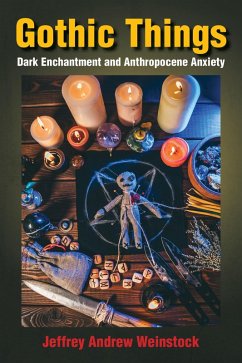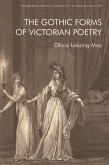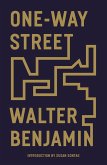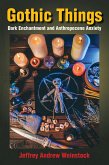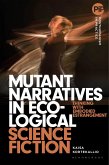Offering an innovative approach to the Gothic, Gothic Things: Dark Enchantment and Anthropocene Anxiety breaks ground with a new materialist analysis of the genre, highlighting the ways that, since its origins in the eighteenth century, the Gothic has been intensely focused on "e;ominous matter"e; and "e;thing power."e; In chapters attending to gothic bodies, spaces, books, and other objects, Gothic Things argues that the Gothic has always been about what happens when objects assume mysterious animacy or potency and when human beings are reduced to the status of just one thing among many-more powerful-others.In exploring how the Gothic insistently decenters the human, Jeffrey Andrew Weinstock reveals human beings to be enmeshed in networks of human and nonhuman forces mostly outside of their control. Gothic Things thus resituates the Gothic as the uncanny doppelgnger of twenty-first-century critical and cultural theory, lurking just beneath the surface (and sometimes explicitly surfacing) as it haunts considerations of how human beings interact with objects and their environment. In these pages the Gothic offers a dark reflection of the contemporary "e;nonhuman turn,"e; expressing a twenty-first-century structure of feeling undergirded by anxiety over the fate of the human: spectrality, monstrosity, and apocalypse.Substituting horror for hope, the Gothic, Weinstock explains, has been a philosophical meditation on human relations to the nonhuman since its inception, raising significant questions about how we can counter anthropocentric thought in our quest to live more harmoniously with the world around us.
Dieser Download kann aus rechtlichen Gründen nur mit Rechnungsadresse in A, B, BG, CY, CZ, D, DK, EW, E, FIN, F, GR, HR, H, IRL, I, LT, L, LR, M, NL, PL, P, R, S, SLO, SK ausgeliefert werden.

